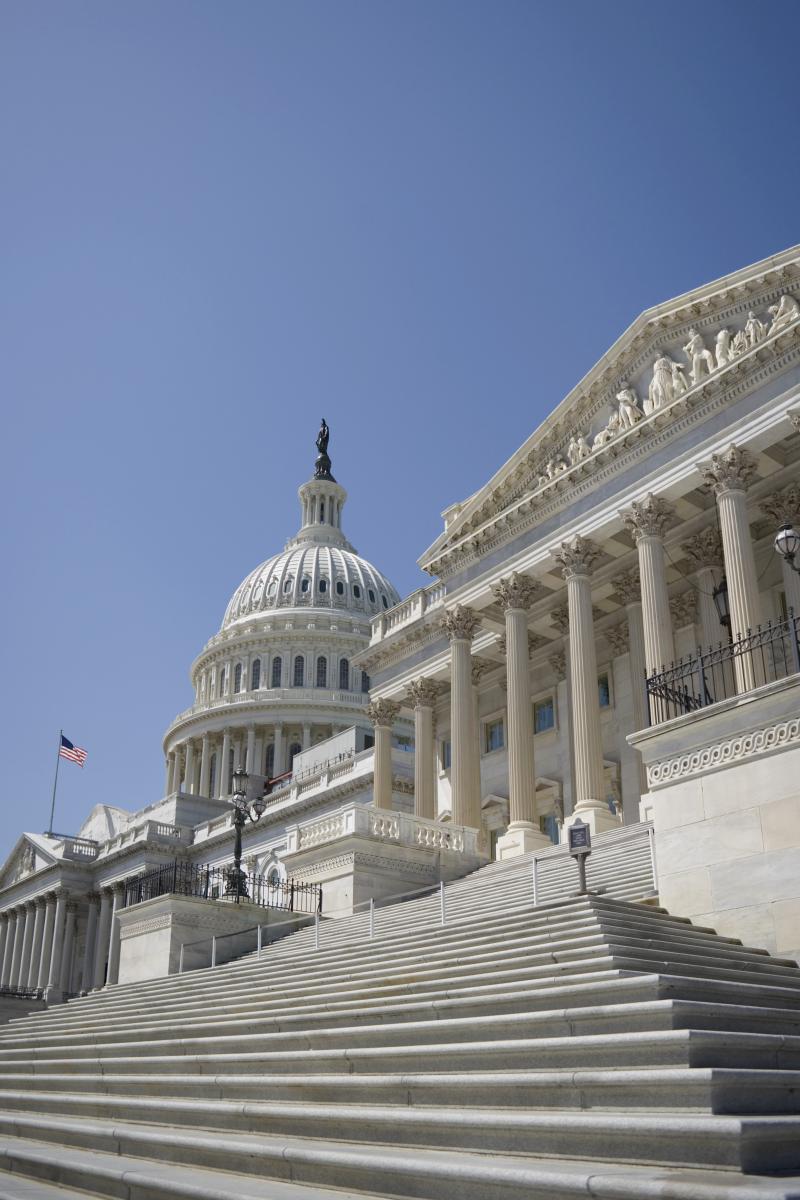In a move that would allow more individuals to save more for their health care expenses in retirement, the House Ways and Means Committee on Sept. 28 approved legislation to significantly expand the health savings account (HSA) contribution limits, as well as broaden the number of individuals eligible for HSAs.
 More specifically, the Committee approved the Bipartisan HSA Improvement Act of 2023 (H.R. 5688), sponsored by Reps. Earl Blumenauer (D-OR) and Lloyd Smucker (R-PA), and the HSA Modernization Act of 2023 (H.R. 5687), sponsored by Rep. Beth Van Duyne (R-TX), which together are estimated to cost approximately $70 billion over 10 years, according to estimates by Congress’ Joint Committee on Taxation.
More specifically, the Committee approved the Bipartisan HSA Improvement Act of 2023 (H.R. 5688), sponsored by Reps. Earl Blumenauer (D-OR) and Lloyd Smucker (R-PA), and the HSA Modernization Act of 2023 (H.R. 5687), sponsored by Rep. Beth Van Duyne (R-TX), which together are estimated to cost approximately $70 billion over 10 years, according to estimates by Congress’ Joint Committee on Taxation.
The legislation is now cleared for full consideration by the House of Representatives.
Changes in HSA Modernization Act (H.R. 5687)
Contribution limit boosted. In what might be the most significant change from the two bills is a provision in H.R. 5687 to increase the HSA contribution limit to equal the sum of the annual deductible and out-of-pocket limitation permitted under a high deductible health plan (HDHP).
For instance, in 2023, the basic limit on annual contributions that can be made to an HSA is $3,850 in the case of self-only coverage and $7,750 in the case of family coverage. Under the proposal, the basic limit for 2023 would be $7,500 for self-only coverage and $15,000 in the case of family coverage. In addition, as under present law, the basic contribution limit is increased by $1,000 for an eligible individual who has attained age 55 by the end of the tax year.
The proposal would be effective for tax years beginning after 2025. The Joint Committee on Taxation estimates that this provision alone would cost an estimated $44 billion over 10 years.
Spouses permitted to contribute “catch-up” funds into the same HSA. Another key provision in H.R. 5687 is to allow both spouses to make catch-up contributions to the same HSA. Under the proposal, if both spouses are eligible for catch-up contributions and either one has family coverage under a HDHP, the annual contribution limit that can be allocated between them includes the catch-up contribution amounts of both spouses. Thus, for example, the spouses may agree to have their combined basic and catch-up contribution amounts allocated to one spouse to be contributed to that spouse’s HSA. The proposal would also be effective for tax years beginning after 2025.
Changes in Bipartisan HSA Improvement Act (H.R. 5688)
Contributions permitted if spouse has health FSA. Under this change, contributions could be made to an HSA if the individual’s spouse also has a health flexible spending arrangement (FSA). As such, for purposes of determining whether an individual is eligible to contribute to an HSA, coverage under the employee’s spouse’s health FSA would be disregarded.
To qualify, the aggregate reimbursements under the health FSA for the plan year must not exceed the aggregate expenses that would be eligible for reimbursement under the FSA if the expenses were determined without regard to any expenses paid or incurred with respect to the otherwise HSA-eligible individual.
FSA and HRA conversions to fund HSAs. In addition, H.R. 5688 would permit certain amounts in a health FSA or health reimbursement arrangement (HRA) to be rolled over into an HSA. This provision apparently would resurrect a provision from the Health Opportunity Empowerment Act of 2006 that expired in 2012. Under the proposal, a distribution from an employee’s health FSA or HRA contributed directly to an employee’s HSA would be considered a “qualified HSA distribution” also provided certain conditions are met.
The aggregate amount of qualified HSA distributions may not exceed the total annual limit on FSA contributions ($3,050 in 2023) or twice this amount in the case of an eligible individual who has family coverage under a high deductible health plan (HDHP).
Additional Changes
Additional provisions in H.R. 5687 and H.R. 5688 that might be of interest to sponsors of and participants in HSAs include the following:
- Individuals qualified for Medicare Part A by reason of age would be allowed to contribute to HSAs.
- Bronze and Catastrophic plans on the health exchange would be considered HDHPs for purposes of establishing an HSA.
- Allows the use of an individual’s HSA funds to cover health care services that occurred up to 60 days prior to the establishment of the HSA.
- Qualified medical expenses would include amounts paid for qualified long-term care services.
- Individuals who utilize direct primary care arrangements and worksite health clinics would be allowed to use their own resources to contribute to HSAs.
“With 78% of health savings accounts owned by taxpayers making less than $100,000, HSAs are clearly a tool middle- and low-income families find useful,” stated House Ways and Means Committee Chairman Jason Smith (R-MO) following passage of the legislation. “However, we can help those same families better utilize HSAs, save more to cover more of their health care costs, and make more of their fellow citizens—like working seniors, veterans, and Native Americans—eligible to partake in the tax savings and flexible care options provided by HSAs.”
In contrast, Rep. Richard Neal (D-MA), the former chair and current ranking Democrat on the Committee, blasted the proposal, saying “Mere hours before Republicans either shut the government down or gut health care services for millions of children, veterans, and seniors, we’re spending this afternoon marking up two bills that do almost nothing for the average American.”
For additional information on the two bills, including the bill text and summary descriptions by the Joint Committee on Taxation, click here.

